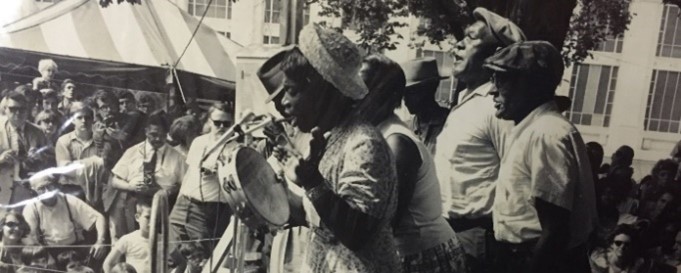
Introduction to Lesson 8 (Continued)
However, not all scholars agree with using the term spiritual to describe this music. Some, like Lydia Parrish, founder of the Spiritual Singers Society of Coastal Georgia, purposefully avoided the use of ''spirituals.'' Instead, she preferred using terms such as ''slave songs,'' ''slave hymns,'' ''plantation songs,'' ''ballads'' (or ''ballats"), and, especially, ''anthems.'' Parrish started going to Saint Simons of the Georgia Sea Islands in 1912, and at the time of writing Slave Songs of the Georgia Sea Islands, she said people still referred to the songs as ''ant'ems'' in both Georgia and the Bahamas. The term "spirituals," she believes, may have originated in South Carolina (Parrish 1942, 5), where the first, and most influential, collection of spirituals (Allen 1867) originated.
One of the first known mentions of the word "spirituals" is in W. F. Allen's article ''The Negro Dialect'' from Nation, published December 14, 1865. In it, Allen, one of the three authors of Slave Songs of the United States, (under the pseudonym ''Marcel'') (Marcel 1865, 744-755), matter-of-factly mentions both ''spirituals'' and ''running sperichils'' (which he relates to ring shouts).
Both ''spirituals'' and ''sperichils'' are also mentioned in Allen's introduction to Slave Songs of the United States (Parrish 1942, ii). Eileen Southern notes that since none of the authors of Slave Songs spent time defining it, ''the term must have been in common usage by the 1860s" (Southern 1997, 180). Incidentally, of the influential (and now widely quoted) articles that preceded the book's publication (Jackson 1967), only ''The Negro Dialect'' actually used the term ''spirituals.''






